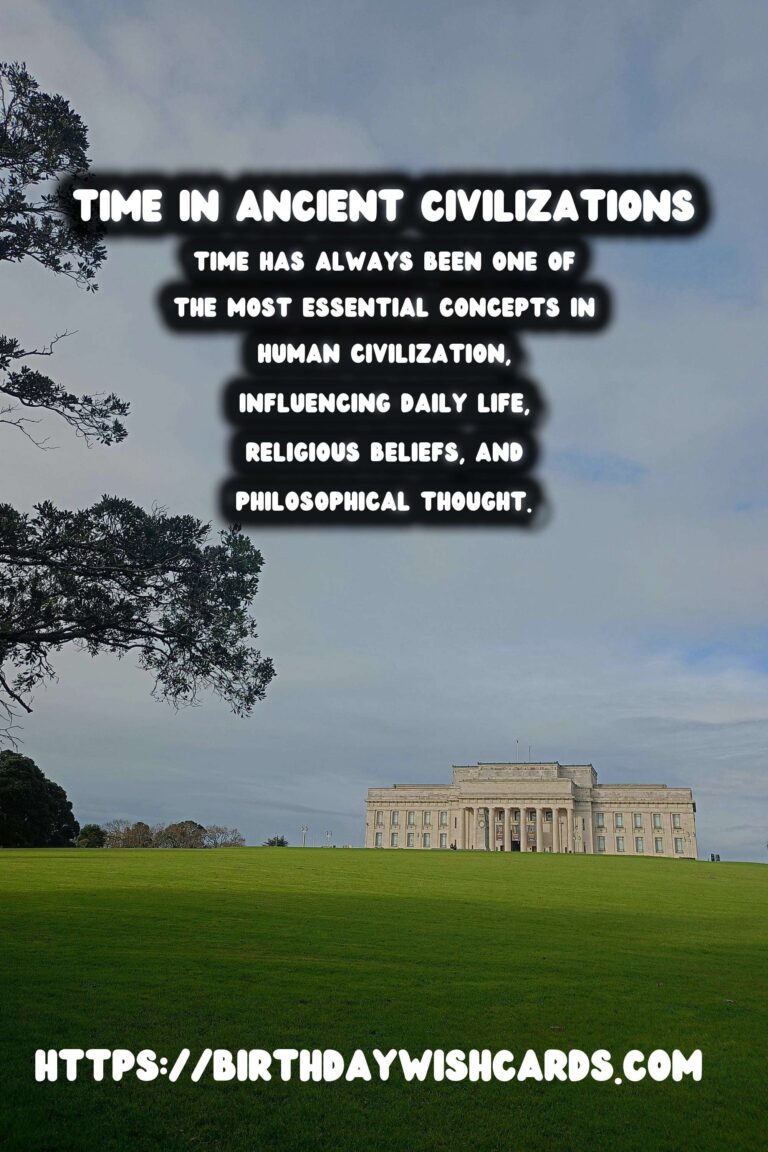
Time has always been one of the most essential concepts in human civilization, influencing daily life, religious beliefs, and philosophical thought.
Early Perceptions of Time
Since ancient times, cultures have conceived time in various forms—past, present, and future. Ancient civilizations like the Egyptians and Sumerians used the movements of celestial bodies to track time, leading to the creation of calendars.
Time in Ancient Civilizations
The Egyptians introduced a 365-day calendar, while the Mayans developed a complex system based on lunar and solar cycles. Each of these systems impacted agricultural practices and religious ceremonies, forever intertwining time with cultural identity.
Cultural Impact on the Perception of Time
Different cultures have different perceptions of time. Western cultures often view time linearly—progressing from one point to another—while East Asian cultures may view it as cyclical.
The Symbolic Meaning of Time
Time has played a crucial role in religious and spiritual symbolism. In Christianity, time represents eternity and the afterlife, whereas in Hinduism it is circular, reflecting reincarnation and karma.
The Modern Era and Time
In today’s fast-paced world, time is both a commodity and a limitation, driving technological advancements and impacting mental health. The concept of time management has become integral to personal and professional success.
Conclusion
Understanding time is understanding the essence of human existence. Its cultural and symbolic meanings stretch across the fabric of history, influencing thought, religion, and science.
Time has always been one of the most essential concepts in human civilization, influencing daily life, religious beliefs, and philosophical thought. In today’s fast-paced world, time is both a commodity and a limitation, driving technological advancements and impacting mental health. 
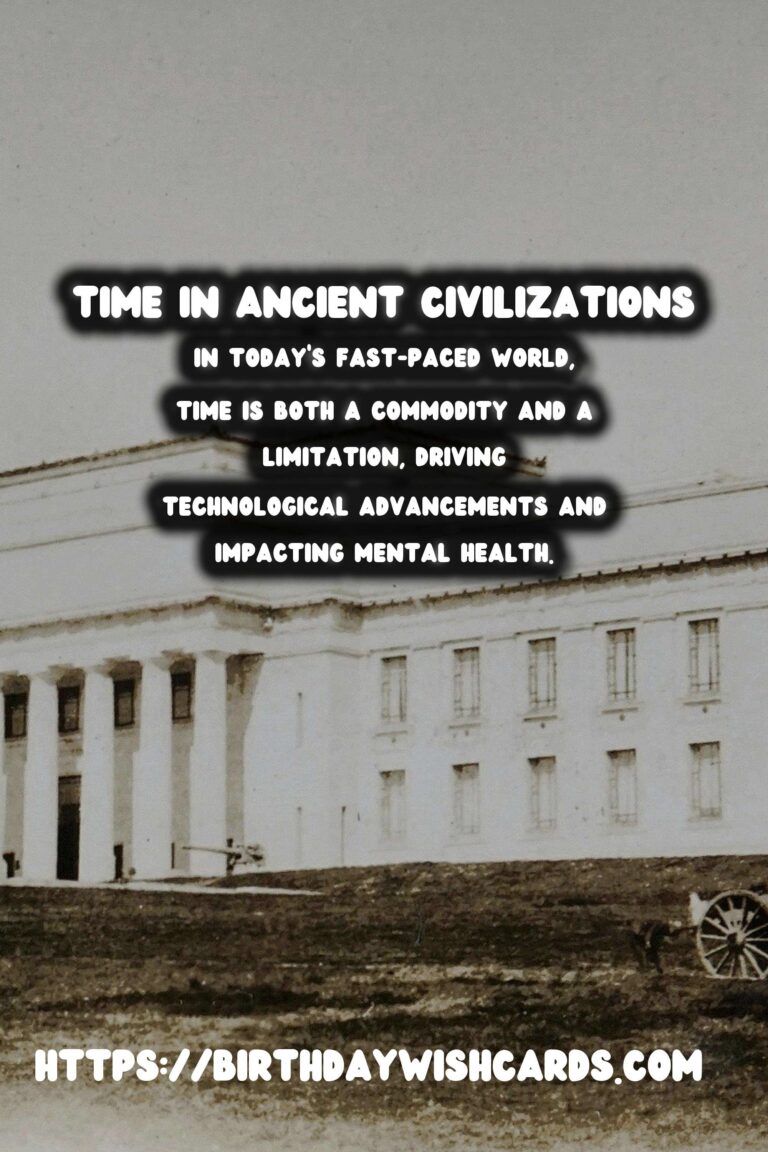
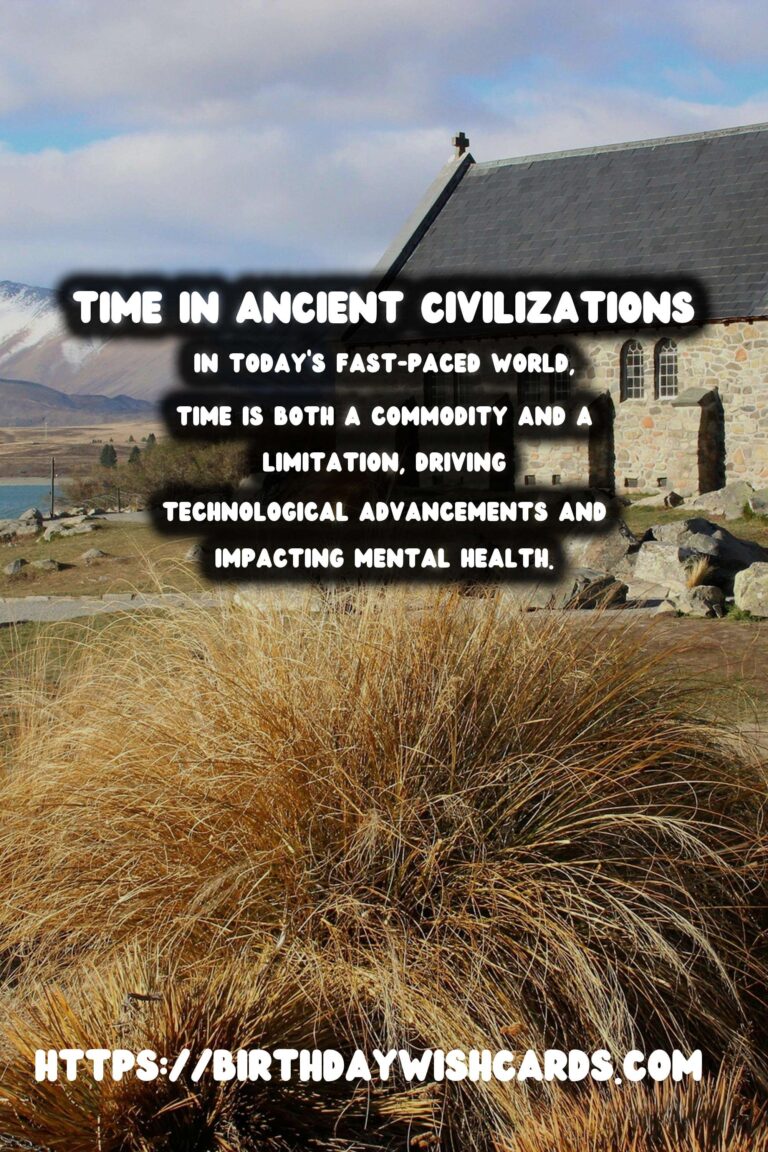
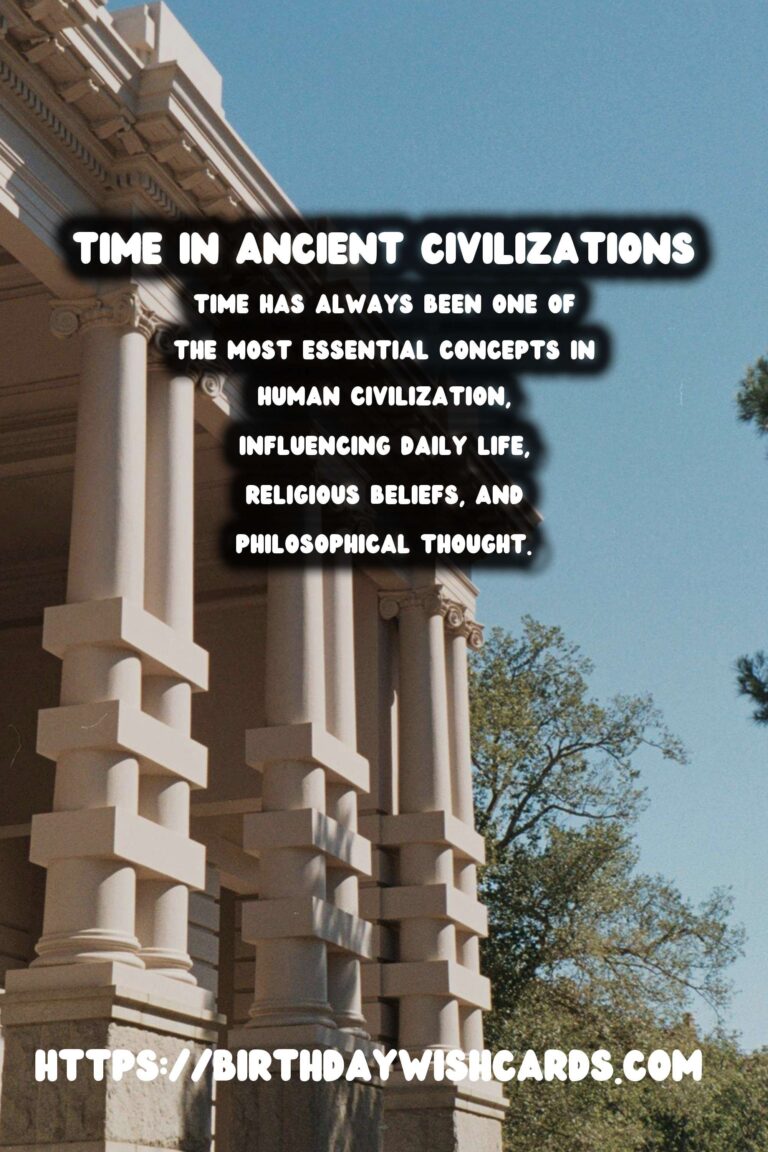
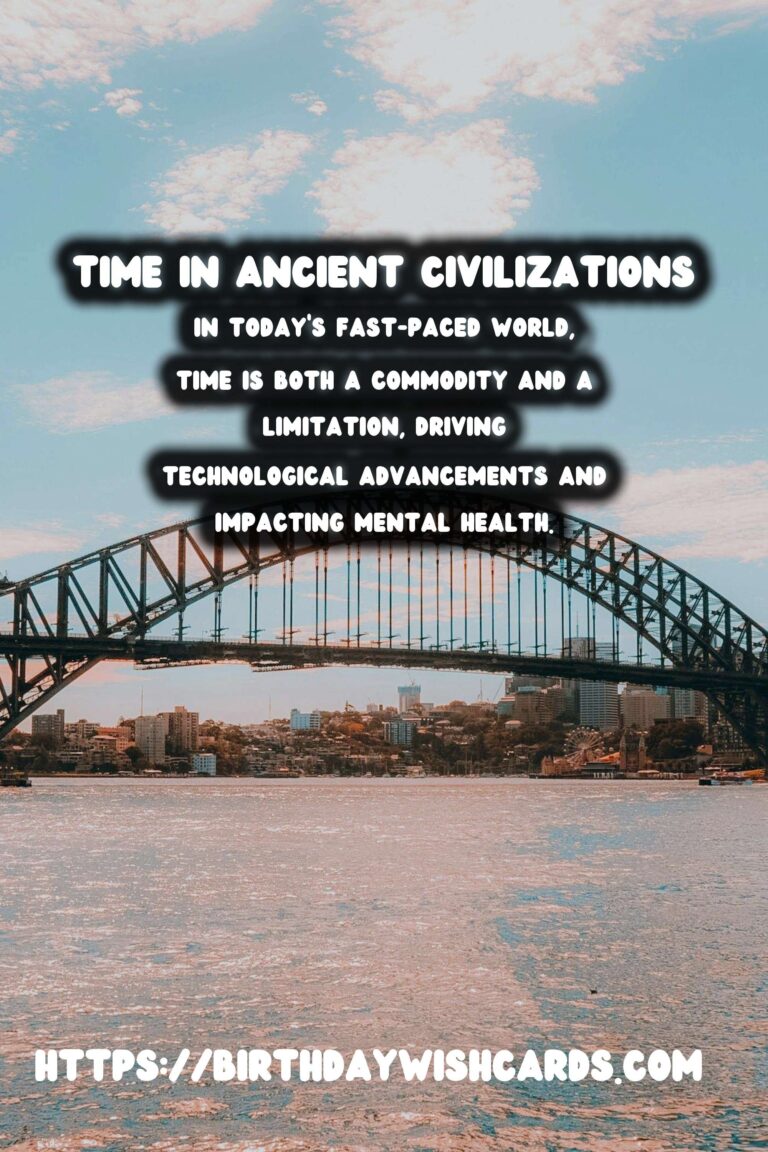
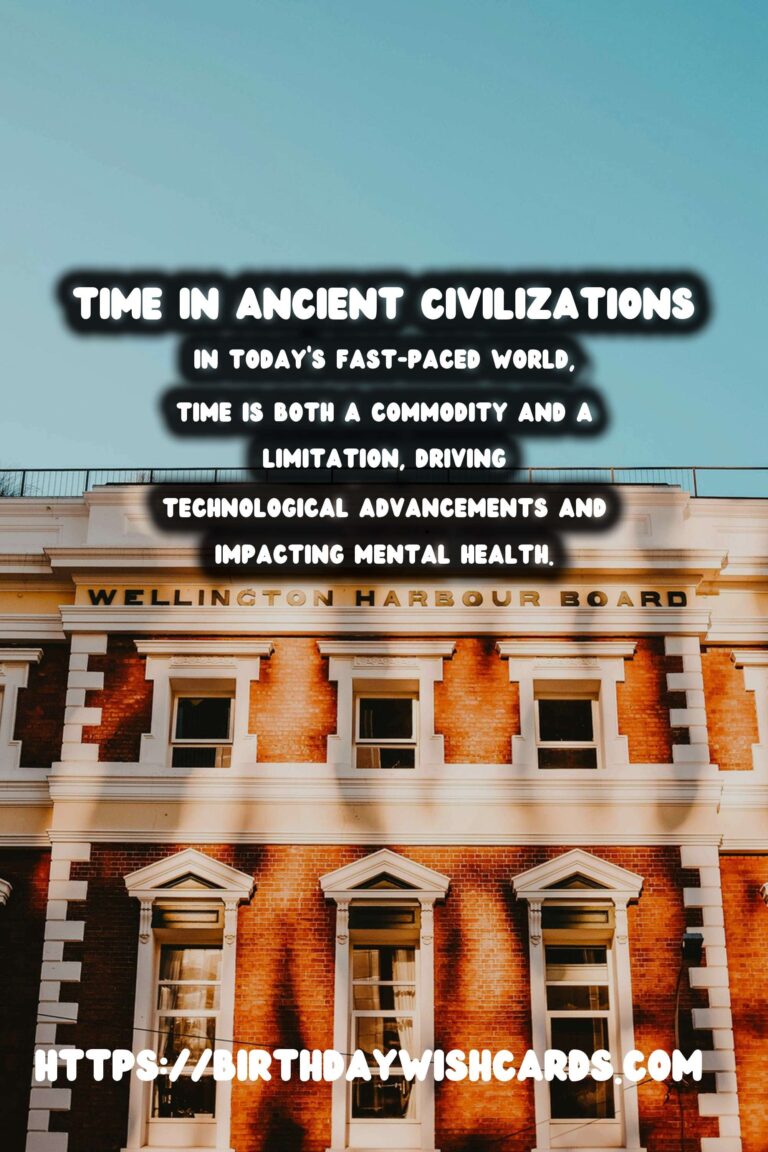
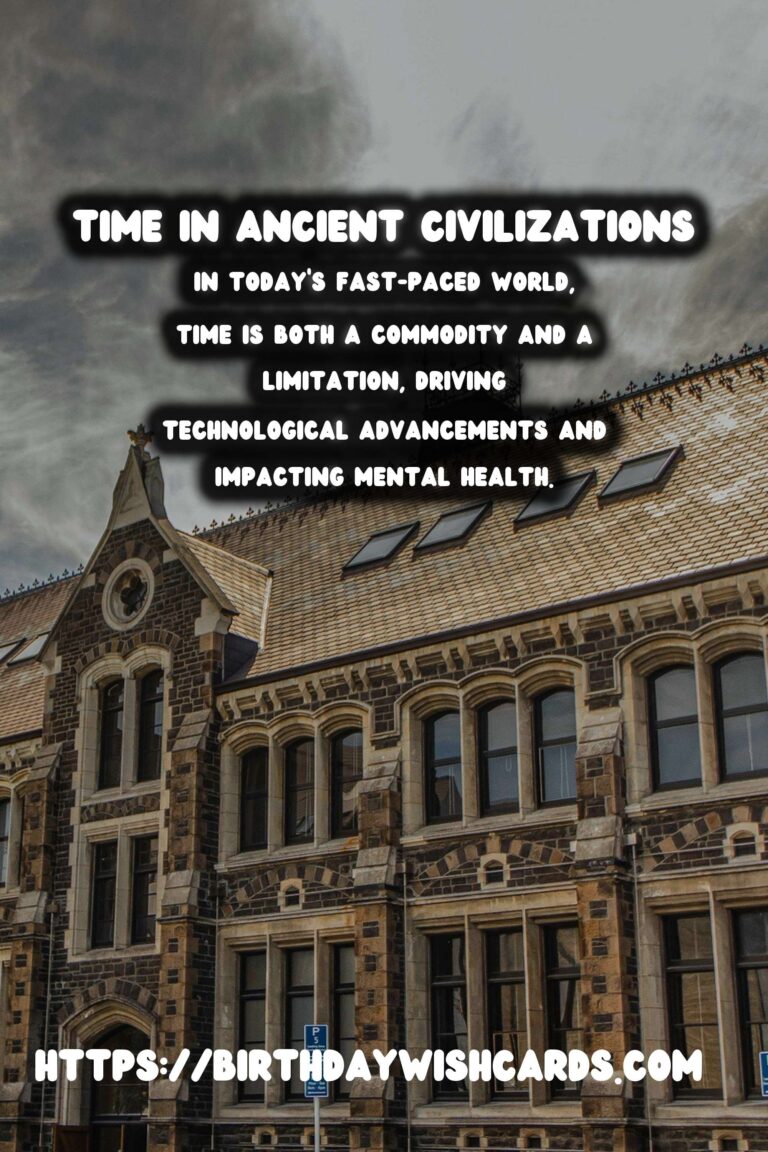
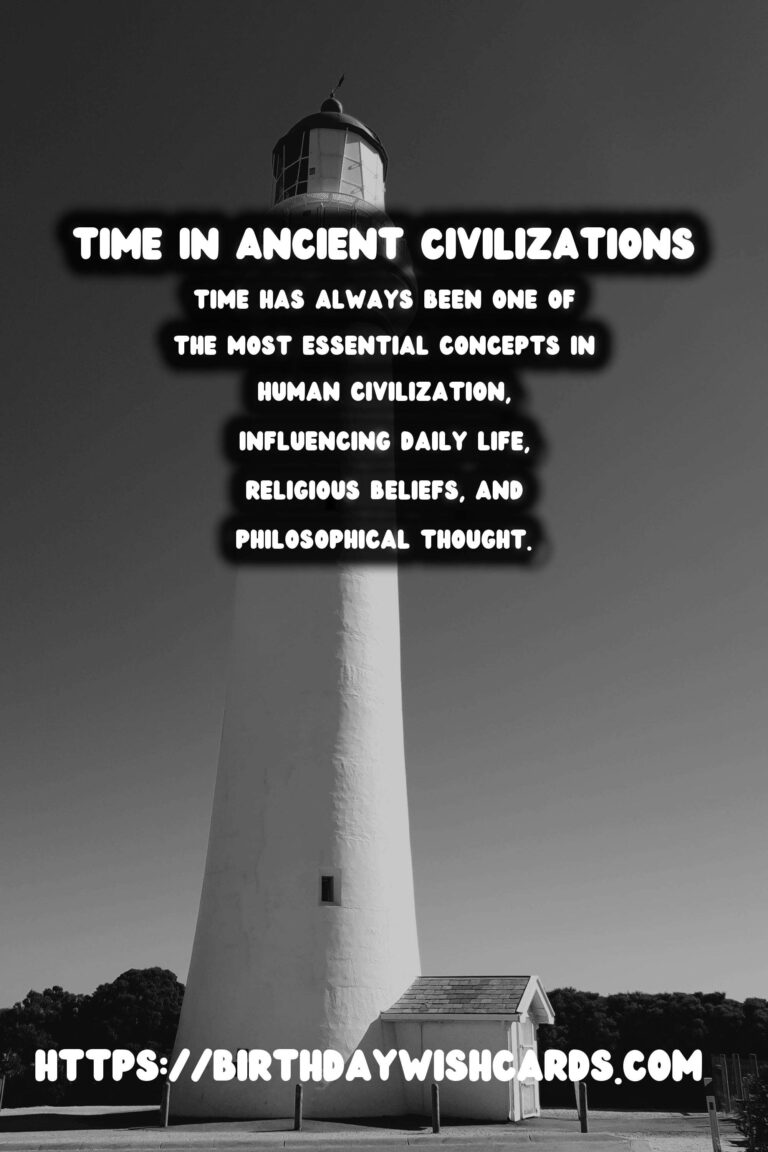
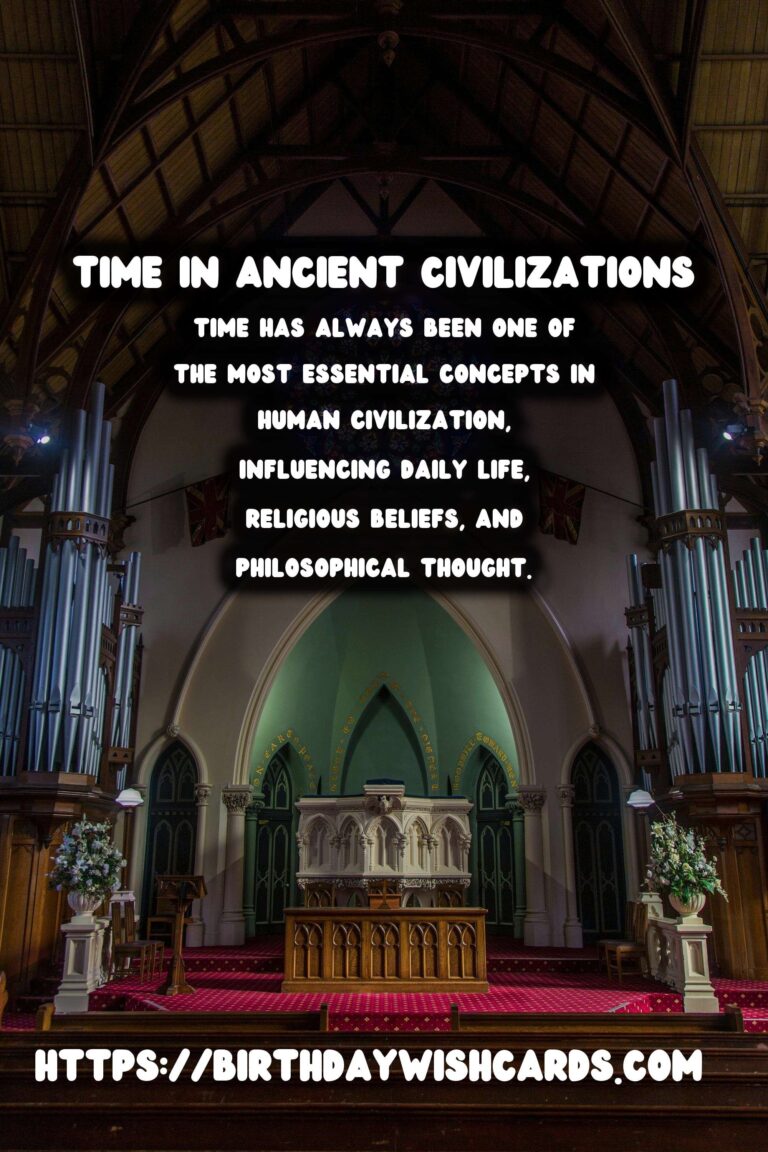
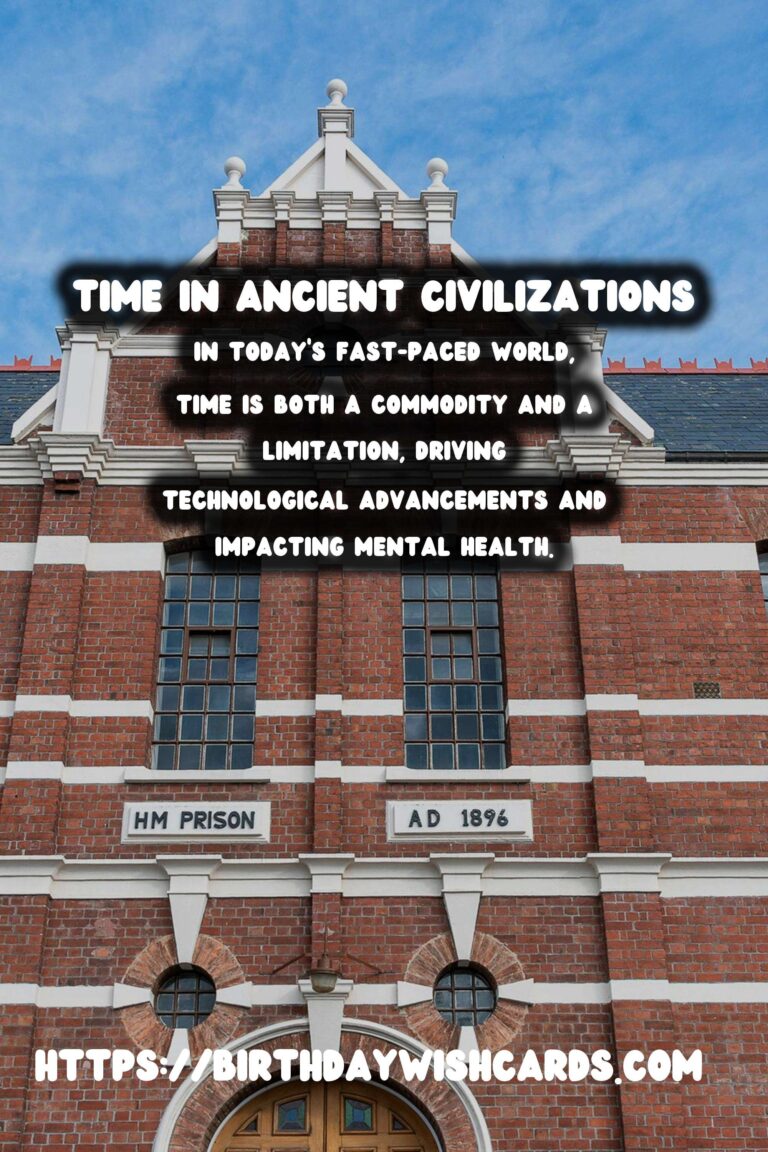
#TimeHistory #CulturalSymbolism




